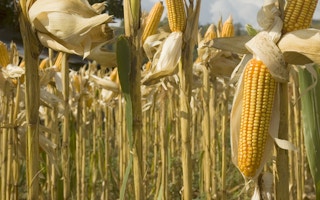More than anyone else, it’s farmers who are caught between a rock and a hard place when it comes to the debate over genetically-modified foods or organisms (GMOs).
In any discussion of biotechnology, there is much opposition and controversy. On one side are the scientists and researchers who put forth the lab tests and field trials as proof of biotechnology’s boons to humanity; on the other are the naysayers who think these ‘frankenfoods’ will only enrich large corporations and impoverish small farms.
Between these two sides are the farmers, who can now choose between the conventional crops they have planted for generations, and commercially available, genetically engineered seeds.
And, as it turns out, a surprising number of Filipino farmers have decided in favour of the new technology.
Sex, violence and incarceration
The farmers’ experiences with biotech crops are documented in two recently published monographs, launched on February 6 at the Dusit Thani Hotel, Manila. The publications were published by the International Service for the Acquisition of Agri-biotech Applications (ISAAA) and Southeast Asian Regional Center for Graduate Study and Research in Agriculture (SEARCA), in collaboration with Agricultural Biotechnology Support Project II (ABSPII) and the John Templeton Foundation.
ISAAA and SEARCA hope that these publications will increase public awareness about biotechnology, and clear up misconceptions by featuring the very farmers who chose to plant biotech crops in their own fields.
“
Economic concerns were the primary consideration when farmers explained why they switched to planting Bt corn
Dr. Randy Hautea, Global Coordinator and Southeast Asia Center Director for ISAAA, introduced the publications, and the many authors who laboured over them. While thanking those present for attending the book launch, he also lamented the infrequency of science news in the media.
“It’s not sexy or violent enough for the front page, but science has its own stories to tell,” he said.
Hautea and other speakers at the launch beseeched the media to feature these stories more prominently, especially when many Filipino scientists and researchers are doing groundbreaking work that is much lauded in other countries. They emphasised media’s role in disseminating accurate information about scientific breakthroughs that could do much to uplift the standards of living of all Filipinos.
Dr. Saturnina Halos, Chair of the Biotech Advisory Team of the Department of Agriculture, gave the key message. She acknowledged the difficulties encountered in promoting new technologies, and called on the media to explain how these can benefit the public.
Public paranoia?
Drawing parallels between the parallel struggles for the public acceptance of genetically-modified crops and vaccines, she said that misunderstandings can lead to great harm.
“Until today you read about the negative effects of vaccine. This has been going on for 100 years. In some countries, they even kill those who distribute vaccines. In Peru, we had scientists incarcerated for promoting GM crops.”
Though no such incarcerations have taken place in the Philippines, the divisive debate over GMOs still saw its share of violence when protesters destroyed field trials of Bt eggplant. The Court of Appeals stopped the field tests in 2013, based on a petition from Greenpeace. The ISAAA was named as a respondent in the case.
Peace of mind for Farmer Juan
While the progress of Bt eggplant has been stalled, Bt corn has been commercially available in the Philippines for over 10 years. One monograph looks into the factors that played a part in farmers’ decisions to adopt biotech crops.
“Adoption and Uptake Pathways of GM/Biotech Crops by Small-scale, Resource-Poor Filipino Farmers” is a project of the UPLB College of Development Communication (CDC-UPLB), ISAAA and SEARCA. The monograph presents the findings of the study, led by Cleofe S. Torres, Professor at the CDC-UPLB, and conducted by Romel A. Daya, Ma. Teresita B. Osalla, and Juvy N. Gopela. The study, conducted in Pampanga, Iloilo and South Cotabato, has findings that validate claims that Filipino corn farmers benefit from biotech farming.
Farmers of Bt corn openly shared their biotech farming experiences with the project team. The study found that economic concerns were the primary consideration when farmers explained why they switched to planting Bt corn. “An overwhelming number (83.4 per cent) considered better yield and income as prime considerations for adopting the biotech corn varieties. The other reasons were agronomic in nature: pest resistance (48.9 per cent); good product quality (48.4 per cenr); and resistance to drought (24.2 per cent).”
Daya reported that, while studies could quantify economic benefits, “other gains have no price tag: sleeping well at night knowing your crops won’t be infested.”
In-depth studies
“Cadres of Change: Transforming Biotech Farmers in China, India and the Philippines” looks at “how technology adoption in developing countries can address… poverty alleviation, sustainability and development” (quoted from the preface). Project leaders Randy Hautea and Mariechel J. Navarro examine the findings of a project called “Adoption and Uptake Pathways of Biotech Crops by Small-scale, Resource-Poor Asian Farmers: Comparative Studies in China, India and the Philippines.”
Why these countries? Hautea explains, “85 per cent of all biotech crop farmers in the world are in these three nations. The real story of biotech crop farmers are in these three countries.” And across all three countries, the farmers enjoy an increased income from the cultivation of biotech crops. But more compelling than bar graphs and field reports are the testimonials from the farmers themselves. The monograph features the very men and women who till the land, buy the seeds and sell the produce, and here they tell their own stories of sweat and hard labor, now made easier with biotech crops.
The monographs are available for download on the ISAAA website (ISAAAA.org).








